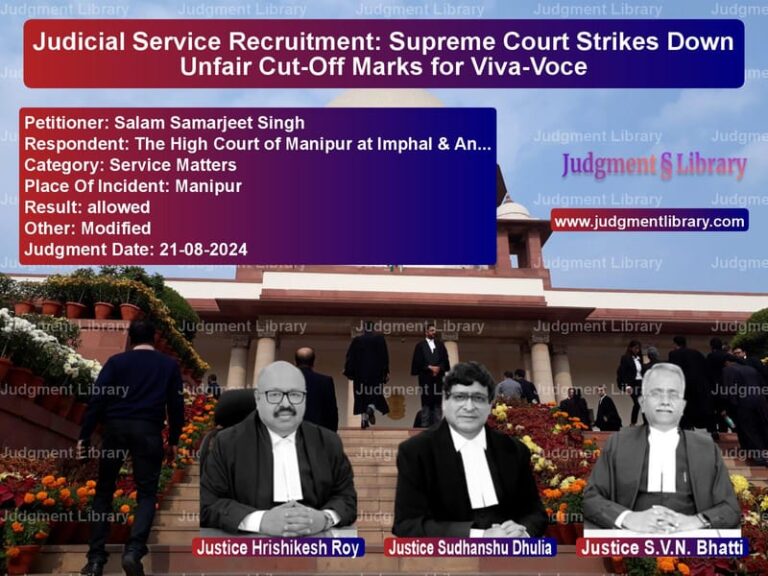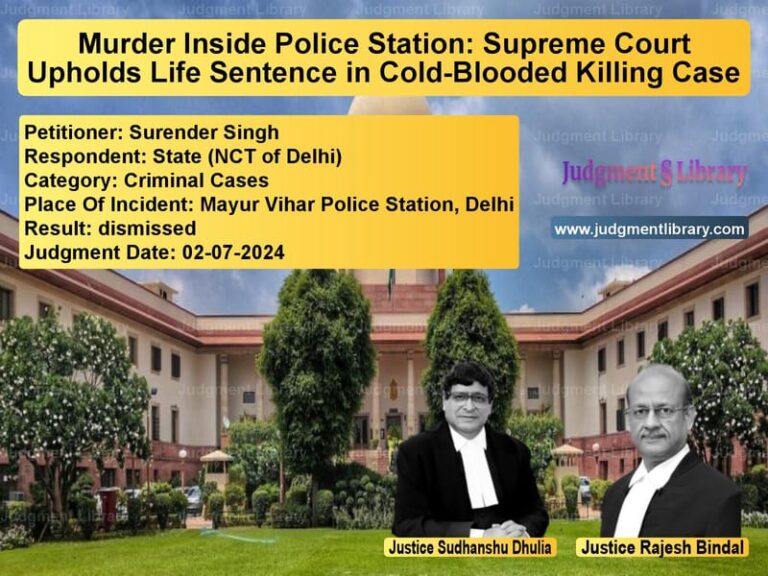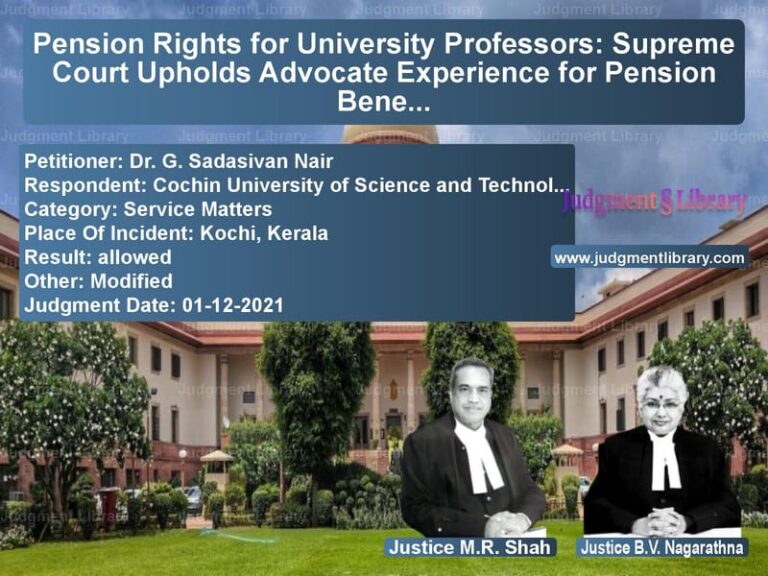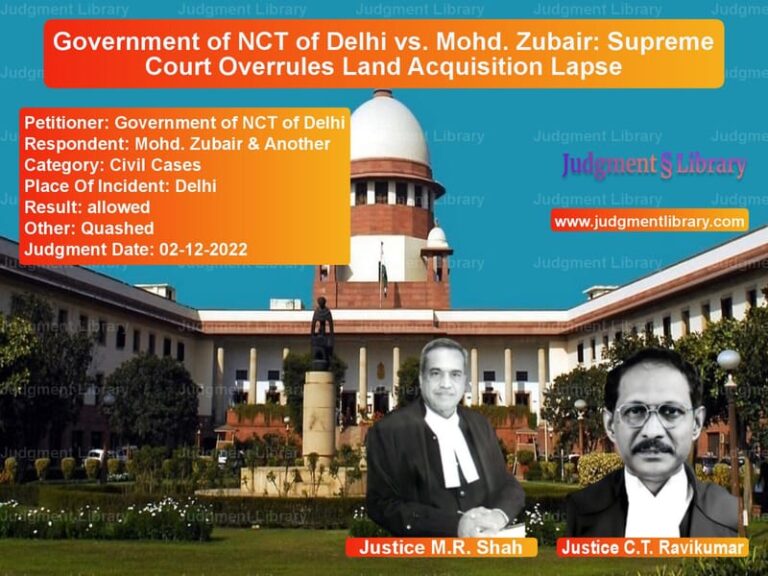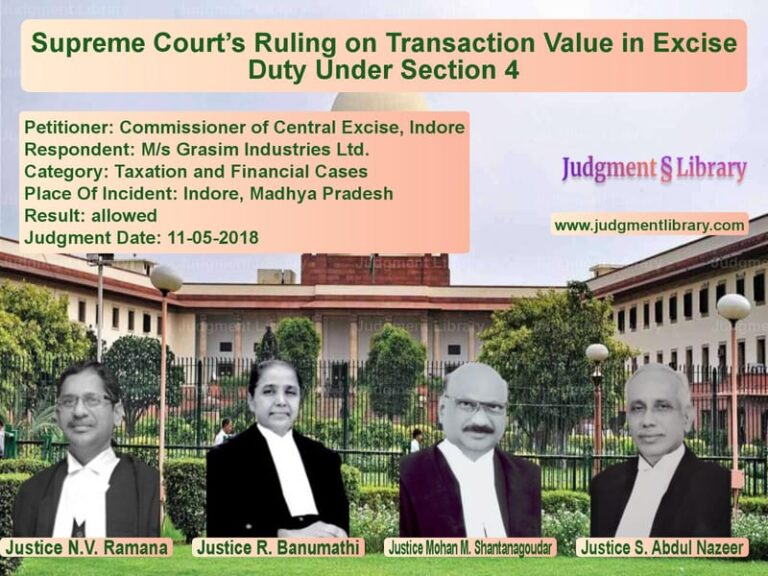Supreme Court Rules Ayurveda and Allopathy Postgraduates Not Entitled to Equal Stipend
The Supreme Court of India recently ruled that postgraduate students pursuing Ayurveda cannot claim equal stipend as their counterparts in Allopathy. The case arose from a petition filed by students of an Autonomous Ayurveda College in Madhya Pradesh, who argued that their duties were similar to those of postgraduate students in modern medicine (Allopathy) and that they were being unfairly discriminated against in terms of stipend.
Background of the Case
The petitioners were postgraduate students enrolled in an Ayurveda program. They argued that their duties in hospitals and medical institutions were equivalent to those of Allopathy students, yet they received significantly lower stipends. The petitioners contended that this disparity violated the principle of equality under Article 14 of the Constitution.
The Madhya Pradesh High Court ruled in favor of the students, directing the state government to provide equal stipend to Ayurveda students. The State of Madhya Pradesh challenged this decision before the Supreme Court.
Arguments by the State of Madhya Pradesh
The State of Madhya Pradesh, represented by Additional Advocate General Saurabh Mishra, presented the following arguments:
- Ayurveda and Allopathy involve fundamentally different approaches to medicine.
- Postgraduate students in Allopathy handle emergency duties, trauma cases, and surgeries, which Ayurveda students do not.
- The state has the discretion to allocate stipends based on the nature and responsibilities of different medical streams.
- The Supreme Court in State of Gujarat & Others v. Dr. P.A. Bhatt & Others (2023) had already ruled that Ayurveda students cannot be equated with Allopathy students for pay-related matters.
Arguments by the Respondents (Ayurveda Students)
The students countered these arguments, stating:
- They provide patient care and participate in hospital duties similar to Allopathy students.
- The difference in stipend amounts to discrimination against Ayurveda students.
- The government had failed to justify the disparity in pay scales.
- Equal pay for equal work should apply to Ayurveda and Allopathy students alike.
Supreme Court’s Analysis and Judgment
The Supreme Court bench, comprising Justices B.R. Gavai and Sandeep Mehta, examined the nature of duties performed by both Ayurveda and Allopathy postgraduate students. The Court referred to its earlier ruling in Dr. P.A. Bhatt, which highlighted key differences between the two streams.
Based on an official comparative chart submitted by the government, the Court observed:
- Allopathy students handle emergency cases, trauma patients, and surgical procedures, which Ayurveda students do not.
- Ayurveda students focus on traditional treatments and awareness programs, whereas Allopathy students engage in intensive hospital work.
- Allopathy students are required to perform night duties and handle post-mortems, which are not part of Ayurveda practice.
The Court concluded that:
“Even while recognizing the importance of Ayurvedic medicine, both categories of doctors are not performing equal work to be entitled to equal pay.”
Accordingly, the Supreme Court set aside the High Court’s ruling and dismissed the petition filed by the Ayurveda students.
Key Takeaways from the Judgment
- The ruling establishes that differences in medical practice justify variations in stipend and pay.
- The Supreme Court reaffirmed that “equal pay for equal work” applies only when duties and responsibilities are identical.
- The decision strengthens the government’s discretion in allocating stipends based on the nature of work.
Impact of the Judgment
The ruling will influence future disputes regarding parity between different streams of medicine and other professional courses. It sets a precedent that pay scales and stipends can vary based on job responsibilities, training requirements, and work conditions.
While Ayurveda students may still push for higher stipends, they will need to do so through policy advocacy rather than litigation.
Petitioner Name: The State of Madhya Pradesh & Others.Respondent Name: Vijay Kumar Tiwari & Others.Judgment By: Justice B.R. Gavai, Justice Sandeep Mehta.Place Of Incident: Madhya Pradesh.Judgment Date: 02-01-2024.
Don’t miss out on the full details! Download the complete judgment in PDF format below and gain valuable insights instantly!
Download Judgment: the-state-of-madhya-vs-vijay-kumar-tiwari-&-supreme-court-of-india-judgment-dated-02-01-2024.pdf
Directly Download Judgment: Directly download this Judgment
See all petitions in Employment Disputes
See all petitions in Public Sector Employees
See all petitions in Recruitment Policies
See all petitions in Judgment by B R Gavai
See all petitions in Judgment by Sandeep Mehta
See all petitions in allowed
See all petitions in Quashed
See all petitions in supreme court of India judgments January 2024
See all petitions in 2024 judgments
See all posts in Service Matters Category
See all allowed petitions in Service Matters Category
See all Dismissed petitions in Service Matters Category
See all partially allowed petitions in Service Matters Category


